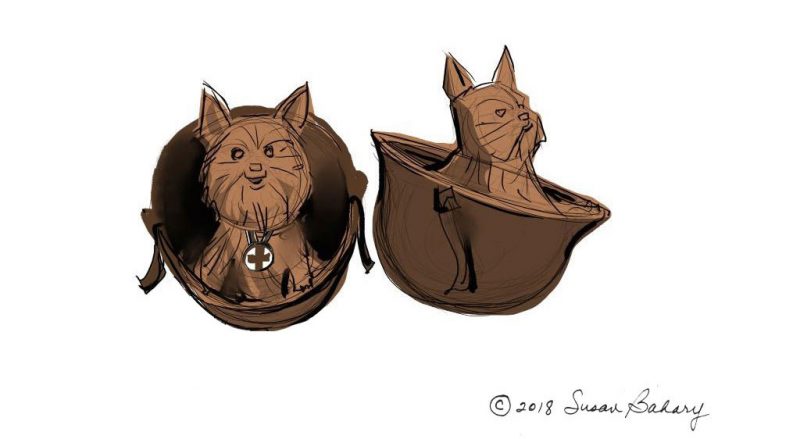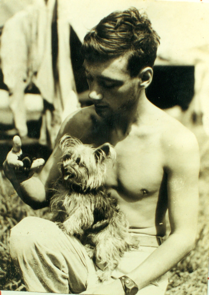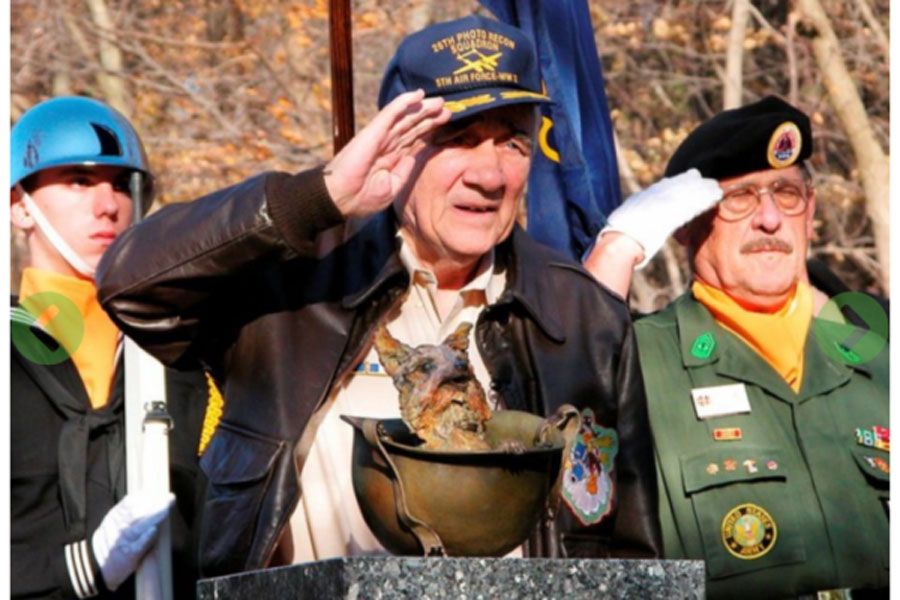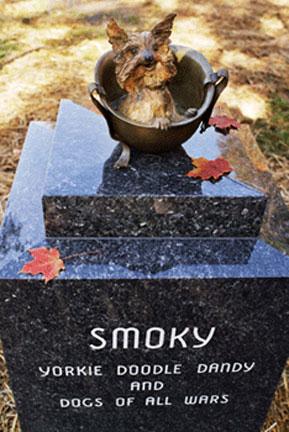Smoky – First Therapy Dog & Veteran of WWII

As an unofficial Army war dog she performed heroically and is also considered by many to be the first Therapy Dog on record for deeds at war and at home. Smoky represents Therapy Animals at the National Service Animals Memorial.

“Smoky” was a 4-lb Yorkshire Terrier rescued from a foxhole in New Guinea during WWII.
She reminds us of the importance of rescuing all of our animals, treating them well, and when possible training them for service work.
Bill Wynne penned a wonderful and touching book about his life with Smoky, entitled “Yorkie Doodle Dandy”.
Only a select few rescue animals have the temperament to become service animals, but Smoky was one of them. She went on 12 missions and survived 150 air raids with her adoptive owner and trainer Corporal William W. (Bill) Wynne. He also trained her to do 250 tricks to entertain the troops.
She received medals including the Purple Cross (from Australia) which was to recognize the actions of animals, particularly if they have risked their life to save a person from injury or death.
Smoky’s monument by Susan Bahary can be seen at the Cleveland Metroparks and at the Royal Brisbane and Women’s Hospital in Queensland, Australia.


Therapy Animals are a newer, separate category of service animals, which are very successful in helping and comforting patients in hospitals, retirement homes, schools, hospices, and disaster areas. They are a very welcome presence to those in need of having their spirits raised and are widely loved and valued.
In the U.S., therapy animals are not considered service animals and are not afforded the same privileges as service animals. However, they are very successful in helping and comforting our citizens in hospitals, retirement homes, schools, hospices and disaster areas. In the U.S., some organizations require that a dog pass the equivalent of the American Kennel Club’s Canine good Citizen test.
Sometimes there are additional requirements specific to the environments in which the animals will be working. Some organizations have their own testing requirements.
Equine-Assisted Activities and Therapy (EAAT) involve the use of horses and other equines for individuals with and without special needs. These include civilians and those in the military with physical, cognitive and emotional issues.
Let's Build it!
News
Contact Us
5662 Calle Real #105
Goleta, CA 93117
Email: info@NSAMproject.org
Phone: 202-774-1992
NSAM is a 501 (c)(3) non-profit organization.
EIN #27-4620979

